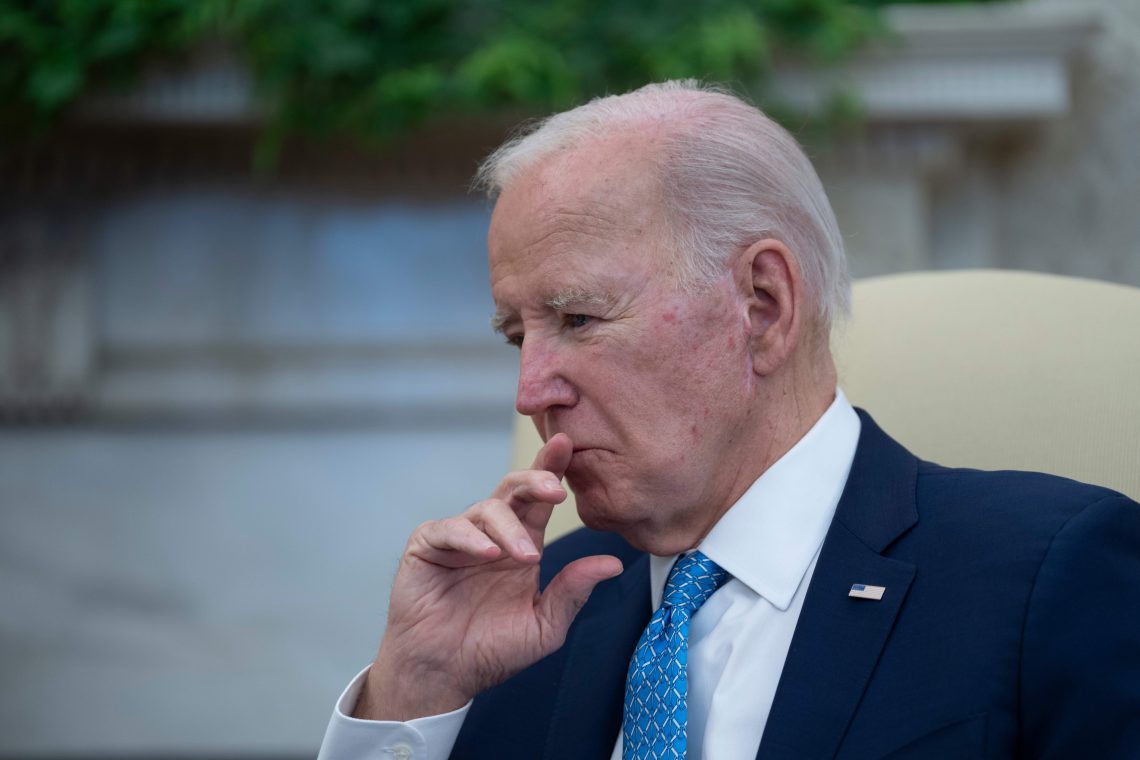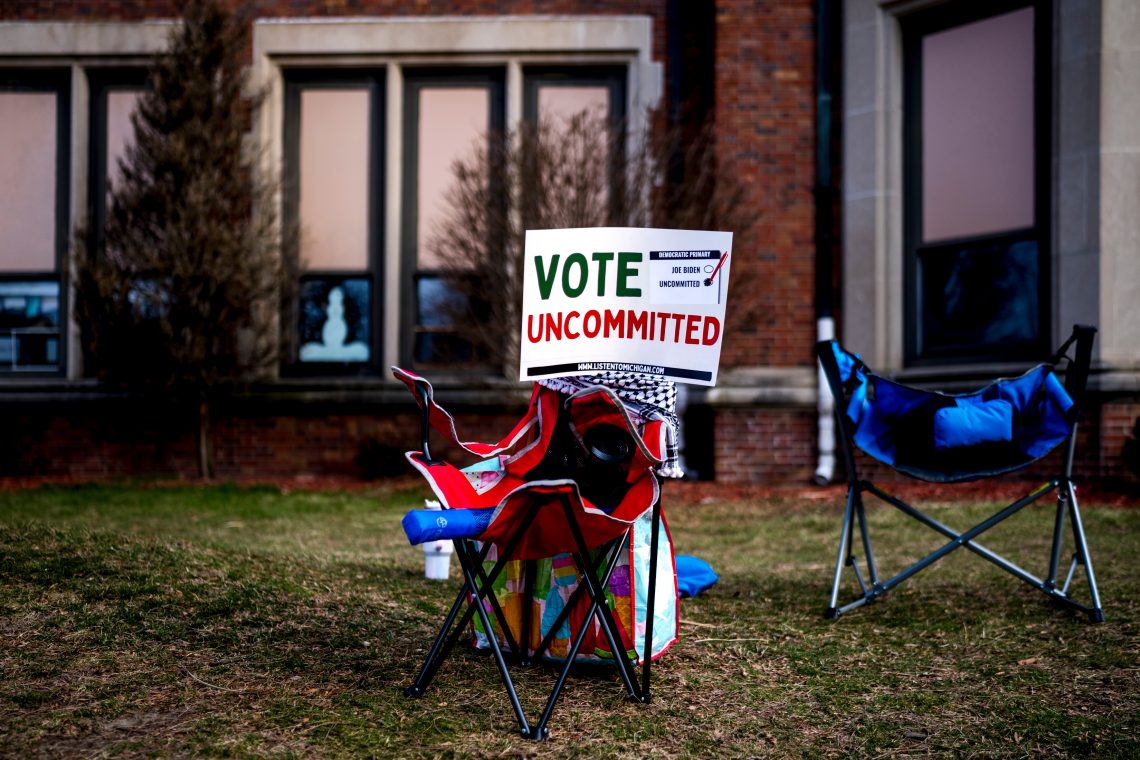As war in Gaza drags on, the U.S. weighs its options
Five months into the Israel-Hamas war, the U.S. interests at stake remain consistent. But coming presidential elections will sway American priorities in the Middle East.

In a nutshell
- Heated U.S. debate on the Israel-Hamas war has not yet shifted policy
- The conflict will alter the future of Israel-U.S. and Middle Eastern initiatives
- The White House is unlikely to have much sway over Israel’s course of action
The war in Gaza, tragic as it is in humanitarian terms, has had a clarifying effect on the debate over the American military and diplomatic presence in the Middle East. Although relations between Washington and Jerusalem have sometimes been turbulent, especially as under former President Barack Obama, the biggest points of contention were swept aside the day Hamas attacked Israeli territory.
While views in the White House appear broadly unified, public opinion in the United States is divided. Through the end of 2023, according to one analysis, some one million Americans had taken part in nearly 2,600 demonstrations for both the Palestinian and Israeli causes. Foreign policy is usually not center stage when American soldiers are not deployed, as in Vietnam or Afghanistan. But the violence of the October 7, 2023, Hamas attack and Israel’s response have provoked heated debates on American college campuses and among voters and activists.
While emotions are running high, this unusual mobilization has so far had no impact on U.S. policy in the Middle East. Its fundamentals remain unchanged. As the Center for Strategic and International Studies (CSIS) defined them in 2022, these interests include four key points: “maintaining a favorable balance of power in the region, reducing the threat from terrorist organizations to the U.S. homeland and U.S. interests overseas, protecting freedom of navigation and access to oil, and preventing nuclear proliferation.”
U.S. disappointment
The present war has shown that what matters is not always the degree of support from the White House but how Israeli authorities use it. On paper, the U.S. promotes the solution of two states living peacefully side by side. Following Washington’s prior recognition of Jerusalem as Israel’s capital in 2017 and the 2020 Abraham Accords – aimed at normalizing Israeli-Arab relations – the current administration has felt justified in expecting more from the conservative Israeli government of Prime Minister Benjamin Netanyahu, such as measures like a halt to West Bank settlement expansion or the maintenance of quiet at holy sites.
President Joe Biden has been disappointed with Israel’s current actions in Gaza, but not enough to change the existential nature of the relationship. Some conclude that Israeli diplomacy is abusing this support. “This blank check approach has to stop,” progressive senator Bernie Sanders said last November. The Netanyahu government’s behavior raises questions about a country that has often been deaf to foreign advice, even from its closest allies. “Immunity does not last forever,” Eldad Shavit, a former Israeli intelligence official, said in January.
More on the Israel-Hamas war
- Oil markets: Relative stability amid geopolitical strife
- Drones and asymmetric warfare in Ukraine and Israel
- Iran’s ‘axis of resistance’ after October 7, Part 1: Hezbollah
- Iran’s ‘axis of resistance’ after October 7, Part 2: The Houthis
It is easy to foresee that the Israel-U.S. relationship will look different after the Gaza war. The seriousness of the conflict will not suddenly dissipate, and it could derail ambitious projects already in the works. Israeli Defense Minister Benny Gantz, for example, has discussed a regional air defense alliance against Iran, working closely with the Gulf monarchies. It will be hard to revive such a project after Gaza. The countries that signed the Abraham Accords (Bahrain, the United Arab Emirates, Sudan and Morocco) have not withdrawn from the agreement, but Arab public opinion has been deeply affected by the devastation in Gaza. CENTCOM’s mission to develop partnerships for regional stability will become more challenging.
Regional footprint
The military balance is complex for the U.S., which must now respond to repeated attacks on its bases in Syria and Iraq without expanding or intensifying the conflict. Most analysts believe that Iran and its militias are unwilling to push Israel and the U.S. to the limit. Many of its stated threats have not been carried out. The leader of the Tehran-backed Hezbollah, Hassan Nasrallah, is virulent in his rhetoric, but there is still no sign that he is pursuing a full-fledged conflict. Iran’s foreign minister, Hossein Amir-Abdollahian – who continues to claim that Tehran had nothing to do with the attacks against U.S. targets – also has no immediate interest in playing the cards in his deck. For now, it is more important to build solid diplomatic relations with Russia and China than to spark a doomed conflict with America.
Some observers have claimed that Washington is using the current crisis to strengthen its military presence in the Middle East. There is little evidence of this; since the withdrawal from Afghanistan, CENTCOM’s strength has fallen from 75,000 to some 40,000-60,000 troops stationed at 18 bases. Current troop numbers in Iraq (2,500) and Syria (600-900) already ensure a stable military presence in the heart of an unstable region. The supposed American fear of withdrawal from the region is in fact based on pragmatism: Abandoning a military base is a matter of a few helicopter flights and truck rotations, while returning to reclaim it requires a fierce battle against pro-Iranian militias.

Despite the war in Gaza and regional tensions with the Houthis and Hezbollah, U.S. military responses have been measured. The priority is to prevent a disproportionate strike from worsening an already deteriorating security climate. Pentagon officials have insisted on the need for precision. Between 2019 and 2021, there were 300 strikes targeting U.S. bases on the Syria-Iraq axis, according to a count by the Defense Intelligence Agency. For now, the U.S. believes its so-called “self-defense” strikes are a sufficient deterrent to keep adversaries at bay.
Iranian threat
The Middle East and North Africa (MENA) region remains an arena for the expression of power. For the Americans, the next phase will be about keeping an eye on post-Gaza negotiations. Nothing has been decided yet, and none of the presently discussed options is accepted by all parties. But an Egyptian proposal to place the U.S. at the center of a trio with Israel and the Gulf to manage the peace process – with the Russians and the Chinese as mere spectators – is the type of solution that could suit the Biden administration. There is nothing yet to indicate that this model will prevail, but it would have the advantage of maintaining an effective American presence in the face of Iranian force.
Since October 7, the U.S. has been monitoring the actions of Tehran, which has taken the Gaza war as an opportunity to strengthen its regional positions – not on the Israeli border, as tactical thinking could suggest, but on an axis further north (Abu Kamal/Deir ez-Zor/Homs/Tartus), which opens access to the Mediterranean. Faced with an increase in suspicious military movements, on November 30, U.S. forces carried out exercises near Deir ez-Zor in Syria, a stronghold of Iranian Revolutionary Guard Corps fighters. Concurrently, mediation meetings were organized with sheiks from the Al-Uqaydat clan and members of the Syrian Democratic Forces.
Proxy militants are proving more difficult to manage than Tehran itself. The Houthi rebels escalated matters by increasing their acts of piracy and ship-boarding in the Persian Gulf and Red Sea. Iran’s comments have been, as usual, ambiguous; its leaders say they have nothing to do with Houthi attacks while at the same time issuing threats. Alireza Tangsiri, commander of the Islamic Revolutionary Guard Corps Navy, seemed unimpressed by the establishment of the Prosperity Guardian naval coalition to protect maritime trade: “Our drones flew over [the U.S. Navy] last week. We warned them to land their helicopter … and they followed our orders.”
The debate in the U.S. about “endless war” and what has been called the ideology of resolution – an illusory search for the total resolution of disputes – seems outdated. This could all change later this year, with the U.S. presidential campaign and the likely duel between President Joe Biden and former President Donald Trump. Mr. Trump is unpredictable but credited with two relevant actions: the recognition of Jerusalem as Israel’s capital and the launch of the Abraham Accords to establish relations between Arab countries and Israel.
Scenarios
The outcome of the presidential election will either reaffirm or obscure U.S. policy in the MENA region.
More likely: Deconfliction process
The Biden administration supports a successful de-escalation process in Gaza. It promotes an agreement to end the fighting and release remaining Israeli hostages although fails to establish a clear roadmap for a political post-war transition. If President Biden is reelected, the de-escalation will continue, but the White House will likely still fail to restrain Israeli actions. If Mr. Trump is elected, the Middle East will enter an era of uncertainty.
Less likely: Perpetual conflict
Hamas faces some form of defeat, but de facto continues to dominate Palestinian society. Israel imposes a comfortless cessation of hostilities, while Tehran “Talibanizes” Palestinian armed groups. Washington is unable to sway Prime Minister Netanyahu’s government, which, emboldened by its military victory, pays little heed to American advice. Gaza is gradually rebuilt. The Palestinian movements rearm and reorganize. And then, one day, it starts all over again.
For industry-specific scenarios and bespoke geopolitical intelligence, contact us and we will provide you with more information about our advisory services.









